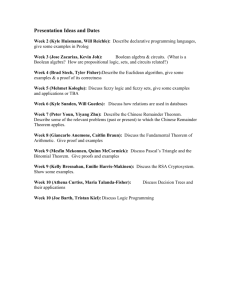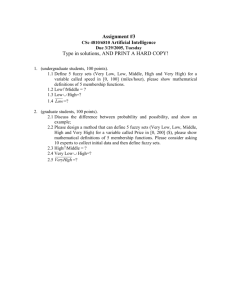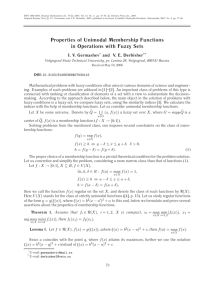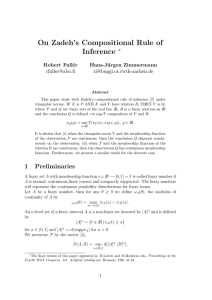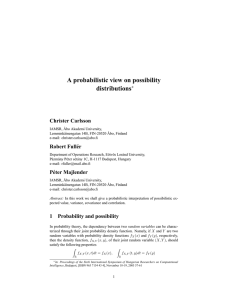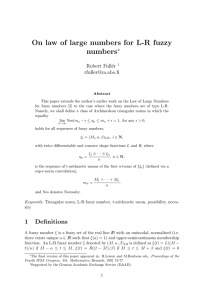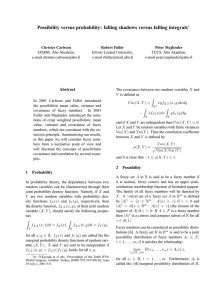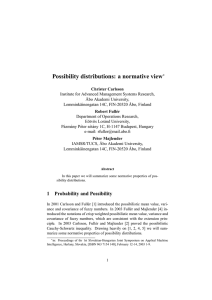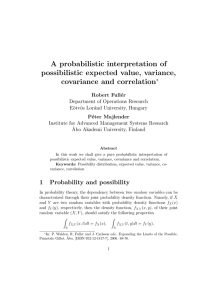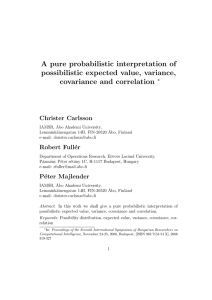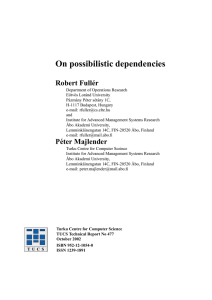A note on the law of large numbers for fuzzy... ∗ Robert Full´er Eberhard Triesch
advertisement
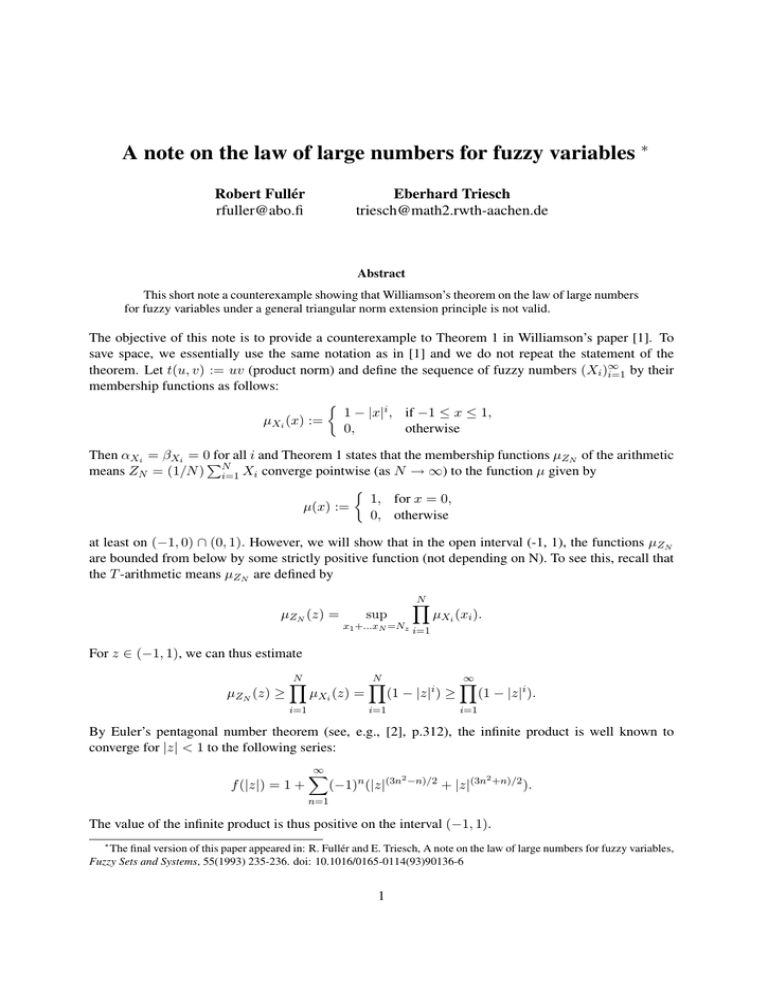
A note on the law of large numbers for fuzzy variables ∗ Robert Fullér rfuller@abo.fi Eberhard Triesch triesch@math2.rwth-aachen.de Abstract This short note a counterexample showing that Williamson’s theorem on the law of large numbers for fuzzy variables under a general triangular norm extension principle is not valid. The objective of this note is to provide a counterexample to Theorem 1 in Williamson’s paper [1]. To save space, we essentially use the same notation as in [1] and we do not repeat the statement of the theorem. Let t(u, v) := uv (product norm) and define the sequence of fuzzy numbers (Xi )∞ i=1 by their membership functions as follows: 1 − |x|i , if −1 ≤ x ≤ 1, µXi (x) := 0, otherwise Then αXi = βXi = 0P for all i and Theorem 1 states that the membership functions µZN of the arithmetic means ZN = (1/N ) N i=1 Xi converge pointwise (as N → ∞) to the function µ given by 1, for x = 0, µ(x) := 0, otherwise at least on (−1, 0) ∩ (0, 1). However, we will show that in the open interval (-1, 1), the functions µZN are bounded from below by some strictly positive function (not depending on N). To see this, recall that the T -arithmetic means µZN are defined by µZN (z) = N Y sup x1 +...xN =Nz i=1 µXi (xi ). For z ∈ (−1, 1), we can thus estimate µZN (z) ≥ N Y µXi (z) = i=1 N ∞ Y Y (1 − |z|i ) ≥ (1 − |z|i ). i=1 i=1 By Euler’s pentagonal number theorem (see, e.g., [2], p.312), the infinite product is well known to converge for |z| < 1 to the following series: f (|z|) = 1 + ∞ X 2 −n)/2 (−1)n (|z|(3n 2 +n)/2 + |z|(3n ). n=1 The value of the infinite product is thus positive on the interval (−1, 1). ∗ The final version of this paper appeared in: R. Fullér and E. Triesch, A note on the law of large numbers for fuzzy variables, Fuzzy Sets and Systems, 55(1993) 235-236. doi: 10.1016/0165-0114(93)90136-6 1 References [1] R.C.Williamson, The law of large numbers for fuzzy variables under a general triangular norm extension principle, Fuzzy Sets and Systems, 41(1991) 55-81. [2] T.M.Apostol, Introduction to Analytic Number Theory, (Springer Verlag, Berlin-HeilderbergNew York, 1976). 2
